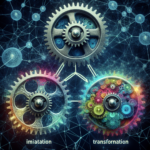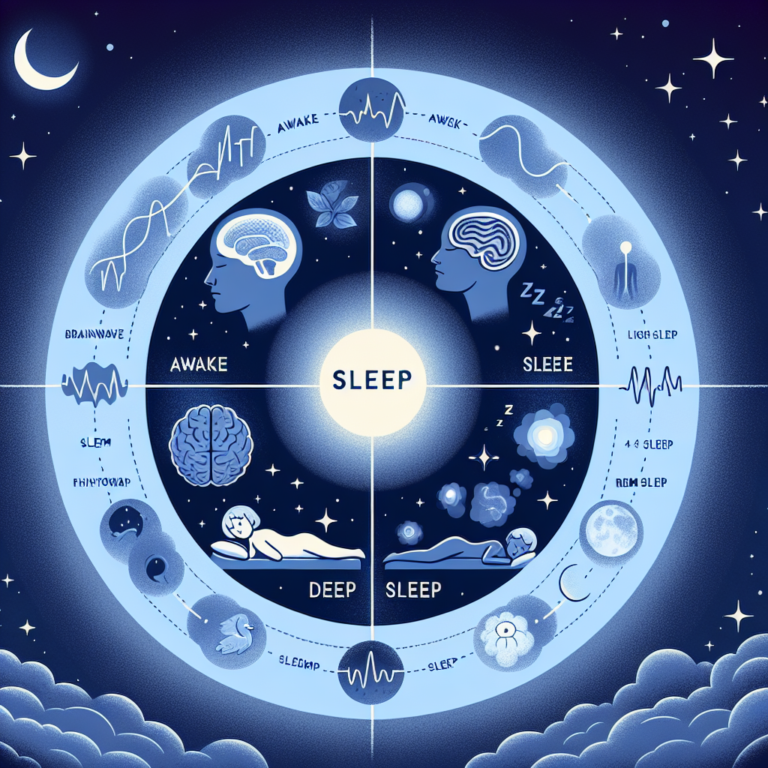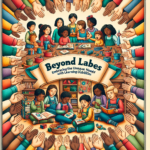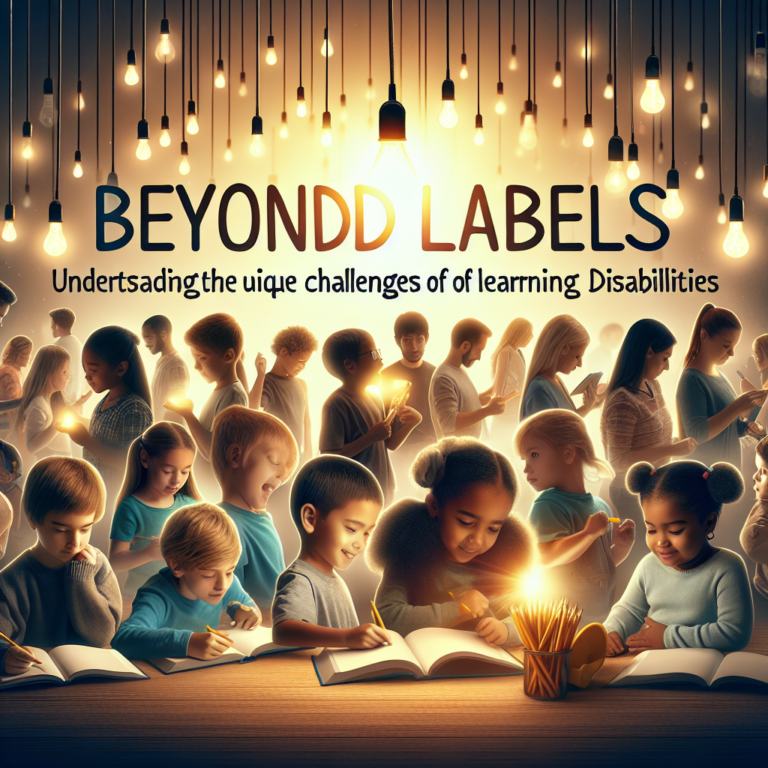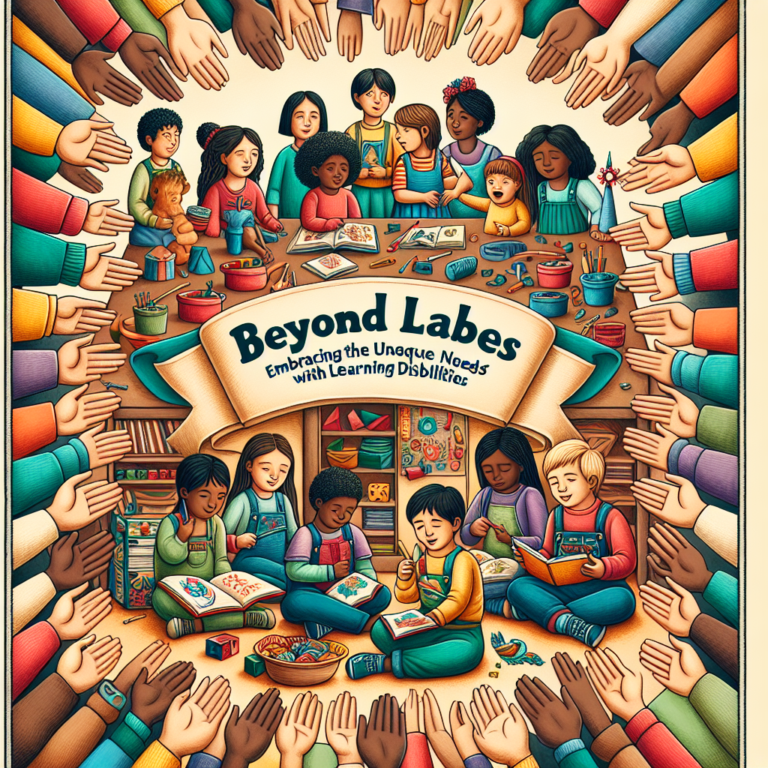
Why Empathy is Essential for Emotional Intelligence in Relationships: The Ultimate Insight
Introduction
Imagine walking into a room filled with friends and sensing an undercurrent of tension. Most people might focus on the conversation at hand, but someone with a high emotional intelligence, anchored by empathy, can pick up on the subtleties in the atmosphere. They know just how to approach the conversation to either alleviate the tension or offer support. Why Empathy is Essential for Emotional Intelligence in Relationships is not just a catchy phrase; it’s the cornerstone of meaningful interpersonal connections.
Empathy allows individuals to understand and resonate with the feelings of others, establishing rapport, trust, and the necessary emotional connections in both personal and professional environments. This article delves deep into the intricate relationship between empathy and emotional intelligence, highlighting why empathy is essential for emotional intelligence in relationships. Prepare for an enlightening journey that may transform the way you interact with others!
Defining Empathy and Emotional Intelligence
Understanding Emotional Intelligence
Emotional intelligence (EI) is the ability to perceive, control, and evaluate emotions. Pioneered by Daniel Goleman, this concept encompasses five key components:
- Self-awareness: Understanding your own emotions.
- Self-regulation: Managing your emotions effectively.
- Motivation: Harnessing emotions to pursue goals.
- Empathy: Understanding and sharing the feelings of others.
- Social Skills: Building and managing relationships.
Among these, empathy holds a special place as the glue that binds emotional intelligence together.
What is Empathy?
Empathy isn’t merely about understanding; it’s about feeling with someone. It can be divided into two main types:
Cognitive Empathy: The ability to understand another person’s perspective, their thoughts and feelings.
- Emotional Empathy: The deep emotional connection that allows you to feel what someone else is experiencing.
Understanding why empathy is essential for emotional intelligence in relationships begins with recognizing these distinctions.
The Role of Empathy in Building Relationships
Fostering Connection
Empathy is the key to building trust in relationships. When people feel understood, they lower their emotional defenses, paving the way for more open communication. In a case study of a corporate setting, a manager who actively practiced empathy saw a marked improvement in team morale and productivity. Employees were more willing to share their thoughts and feelings, leading to innovative ideas and improved collaboration.
Case Study: The Empathetic Leader
A Fortune 500 company implemented a program emphasizing empathetic leadership. Managers attended workshops focused on active listening and emotional awareness. As a result, employee engagement scores rose by 40%, demonstrating how empathy fuels emotional intelligence, driving workplace relationships.
Enhancing Communication
Understanding why empathy is essential for emotional intelligence in relationships also involves its role in enhancing communication. When individuals engage empathetically, they listen actively, acknowledging not just spoken words but also non-verbal cues. This creates a richer dialogue and minimizes misunderstandings.
Table 1: Communication Styles
| Communication Style | Description | Impact on Relationships |
|---|---|---|
| Aggressive | Dominates conversation, dismisses feelings | Creates conflict and resentment |
| Passive | Avoids expressing feelings | Leads to frustration and disengagement |
| Empathetic | Validates feelings while communicating | Fosters trust and deeper connections |
Promoting Conflict Resolution
Every relationship faces conflict; what matters is how it’s managed. Empathetic individuals are more equipped to navigate disagreements. They can step into their partner’s shoes and understand their grievances rather than reacting defensively. Understanding why empathy is essential for emotional intelligence in relationships helps explain why empathetic conflict resolution leads to stronger bonds.
Case Study: The Couple’s Counselor
In a counseling session, a couple struggled with recurring arguments. The counselor encouraged empathetic dialogues where each partner reflected back what they heard. This led to a breakthrough: they realized the root of their disagreements stemmed from unmet emotional needs. The ability to empathize shifted their perspective, culminating in a more fulfilling relationship.
Strengthening Emotional Bonds
Emotional intelligence nurtured by empathy enhances emotional intimacy. Couples who practice empathy—through active listening and validating each other’s emotions—tend to report higher relationship satisfaction. Understanding why empathy is essential for emotional intelligence in relationships can be pivotal in fostering deeper connections.
Table 2: Effects of Empathy on Relationships
| Emotional Outcome | Result of High Empathy | Result of Low Empathy |
|---|---|---|
| Trust | Increased | Decreased |
| Communication | Open and honest | Guarded and defensive |
| Conflict Resolution | Collaborative | Combative |
| Emotional Intimacy | High | Low |
Real-World Applications of Empathy
In Professional Settings
In the workplace, empathy is essential for effective leadership and teamwork. Organizations with empathetic leaders often witness reduced employee turnover, better job satisfaction, and improved performance. Knowing why empathy is essential for emotional intelligence in relationships can transform workplace dynamics, making it a vital aspect of organizational culture.
Example: Google’s Project Aristotle
Google’s Project Aristotle researched what makes teams successful. They found that psychological safety—feeling safe to take risks and be vulnerable—is vital. Empathy among team members contributes to this safety by fostering an environment that encourages open dialogue.
In Personal Relationships
On a personal level, relationships thrive when empathy is embedded within interactions. Whether among friends, family, or romantic partners, demonstrating empathy can deepen bonds and foster understanding. Recognizing the emotions of loved ones can lead to more fulfilling and lasting relationships.
Case Study: The Long-Distance Relationship
A couple navigating a long-distance relationship utilized technology to enhance their emotional connectivity. They scheduled weekly video calls where they practiced empathetic listening, allowing each to express their feelings about the challenges of distance. This practice not only strengthened their bond but also deepened their understanding of one another’s struggles, showcasing why empathy is essential for emotional intelligence in relationships.
How to Cultivate Empathy
Active Listening Techniques
Paraphrase: Reflect back what the person has said to ensure understanding.
Ask Open-Ended Questions: Encourage the speaker to share their feelings and thoughts in-depth.
- Be Present: Maintain eye contact and minimize distractions to show you are truly engaged.
Self-Reflection
Cultivate empathy by reflecting on your feelings. Recognizing your emotions allows you to better understand those of others, serving as a springboard for greater empathy.
Volunteering
Engage in community service or volunteering, which can broaden your understanding of diverse perspectives and life experiences.
Conclusion
Understanding why empathy is essential for emotional intelligence in relationships unveils the foundation of successful, meaningful connections. Empathy fosters communication, enhances trust, and aids conflict resolution while cultivating emotional intimacy. By nurturing empathy, we not only improve our own emotional intelligence but also enhance the quality of our relationships with others.
Take the journey of forging empathetic connections, practicing active listening, and being present in your interactions. The rewards—stronger relationships, improved communication, and emotional fulfillment—are well worth the effort.
FAQs
1. Why is empathy considered a key component of emotional intelligence?
Empathy allows individuals to connect emotionally with others, enabling better understanding and communication, which are critical for managing relationships effectively.
2. Can empathy be cultivated?
Yes, empathy can be cultivated through active listening, self-reflection, and engaging with diverse communities to broaden your perspective.
3. How does empathy improve conflict resolution?
Empathetic individuals can approach conflicts with a perspective that considers the emotions and viewpoints of others, fostering collaborative solutions.
4. What is the difference between empathy and sympathy?
Empathy involves feeling with someone and understanding their emotions, while sympathy is about feeling pity or sorrow for someone’s situation without necessarily understanding their feelings.
5. How does empathy contribute to workplace success?
Empathy in the workplace enhances communication, builds trust, and fosters a collaborative environment, leading to improved employee morale and productivity.
In understanding why empathy is essential for emotional intelligence in relationships, we equip ourselves to improve our interpersonal connections and transform our lives for the better. Be a catalyst of empathy in your interactions—it’s the ultimate form of emotional intelligence.
